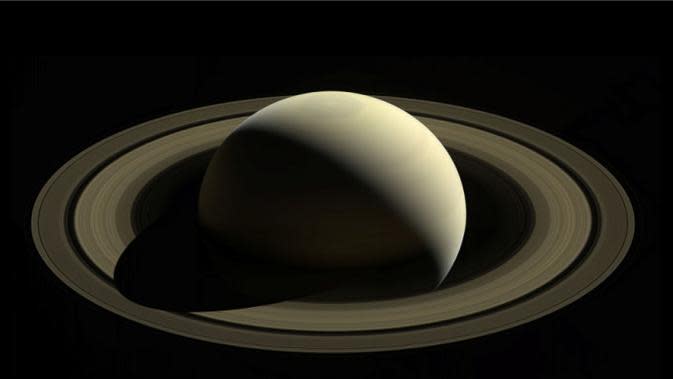Liputan6.com, New York City – In the time of ‘fans of the world space‘ racing across the planet Mars and Venus. A recent study found signs of microbes and methane gas in Saturn.
Airplane space Cassini managed to collect data on the chemical composition of the water plume that erupted from the Enceladus. He found very high amounts of methane. Where methane gas is often associated with life on Earth.
As reported by Cnet on Friday (09/07/2021). NASA’s aircraft also recorded the results of the relatively high concentrations of dihydrogen and carbon dioxide molecules.
Regis Ferriere, a biologist at the University of Arizona on Tuesday (06/07/2021), said he wanted to know more about whether Earth-like microbes could ‘eat’ dihydrogen and produce methane. Can explain the surprising amount of methane detected by Cassini.
Previous research has shown Enceladus has ingredients to support life. Enceladus has a sea below with a hot source surface. Scientists see possible parallels between blobs Enceladus and hydrothermal vents on the Earth’s ocean floor.
Doesn’t Mean There’s Life
Ferriere and her research colleagues applied mathematical models to determine what processes might explain Cassini’s methane data. They concluded that the Cassini data made consistently good results with microbial hydrothermal vent activity. Or by processes that do not involve life forms but are different from those known to occur on Earth.
In this discovery, it does not mean that the researchers stated the existence of life on Enceladus. However, they say microbes may be one explanation for the data. For that, they need to conduct further research to determine whether the search is on a mission to find life beyond Earth, especially on Saturn’s moons.
Enceladus isn’t the only place in the solar system with a methane mystery. NASA is working on the reasons behind the Curiosity rover detecting methane near the ground on Mars. Yet the orbiting spacecraft failed to find gases higher in the atmosphere.
The search for signs of Martian microbes is a noble mission. It will likely be easier to achieve than to find out exactly what happened to Enceladus.
“Searching for such microbes, known as methanogens, on the seabed of Enceladus would require deeper and very challenging dive missions, which have been difficult to achieve for decades,” Ferriere said.
Reporter: Ruth Flowers
–


